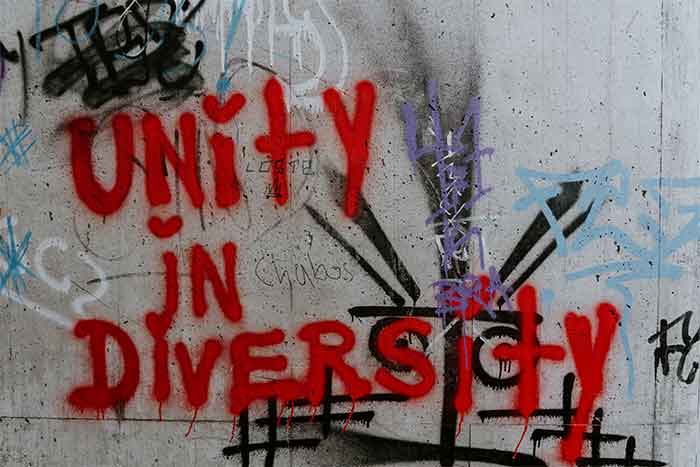
At the time of independence, more than 500 princely states agreed to join the union of India under a common constitution which safeguarded the fundamental rights of its citizens, gave freedom to practice their religious, cultural and linguistic diversities and ensured the integration of a liberal political democracy. An integrated India has not only survived but thrived over the span of seven decades, while also facing some hiccups in the form of language based regional movements to fundamentalist religious movements. Despite the hiccups in India’s journey, nothing has damaged its pluralistic society and liberal democracy, putting a serious question mark over its integrated existence in the future, more than the ongoing assault on the secular idea of India, by the far right regime which tends to polarise people and push them toward religious extremism.
Religious extremism has always haunted India, as the country got its independence at the backdrop of partition which left its scar deep on the psyche of its citizens. Even though there have been religious conflicts in the past too, the state was secular and never promoted violence. Things went south in 2014 when, for the first time, a far right party backed by the RSS ,an organization inspired from Nazi Germany, came to power in majority and declared to form a new but regressive, authoritarian and majoritarian India.
The fulcrum of RSS‘s ideology lies in the creation of a mono ethnic, casteist, patriarchal, and most importantly, authoritarian nation and the creation of such a nation can be only done by changing the idea of India politically, socially, culturally and economically. RSS uses the ideology of Hindutva to vilify minorities, portray them as outsiders in order to create a majority- minority divide, and grade them as second class citizens undeserving of the rights which the constitution of India has granted to all its citizens.
The propaganda of the BJP is injecting a toxic cocktail of hate in public minds, through legislations like CAA, NRC, among others. The recent dystopian scenes of bulldozers bringing down houses mirror the current state of minorities and dissenters in India, who are being suppressed at the whim of those in power.
Recently, a BJP spokesperson made a remark against the prophet, which acted as the trigger to a condemnable incident of retributory killing in Udaipur. Incidents like these may throw India into a vicious cycle of communal riots which, God forbid, may turn into a partition-like situation once again.
People are distressed with their dire economic situation, due to the rising inflation and unemployment rate. With the widening gap between Hindu and Muslim communities, opportunistic political parties will distract people from issues by taking sides and encouraging people to take out their frustration and anger on each other. Political organizations calling for an economic boycott of Muslims can add fuel to the fire and turn economic problems into communal ones. A mass internal migration, either for escaping religious persecution or for better economic opportunities in more prosperous states, cannot be ruled out. This may open a can of worms of linguistic and regionalist political movements in a vastly diverse country. States trying to implement job reservations for local residents are evidence of growing sentiments of regionalism amid economic insecurity. Conflicts based on different identities of religion, language, caste and regionalism, attacks on constitutional federalism and policies, which may cause civil unrest, can lead the country into a dangerous civil war disintegrating the world’s largest democracy into mere conflict ridden states. Even the Nobel laureate economist Amartya Sen recently shared a concerned remark that the biggest crisis facing India is the collapse of the nation and also put emphasis on the notion that Hindus and Muslims should work together.
Indian people embrace their religion and culture in all facets of life. For hundreds of years, the people of India have coexisted with the motto of Unity in Diversity. Although the vast diversities of the Indian civilization have survived blows historically and will continue to so in the future, but in this unprecedented forced attempt to crush its diversity, the unity of India may become a casualty.
Sonit Surana is an undergrad student pursuing engineering from Howrah, West Bengal. He likes to extensively read and write on socio-political issues. He also writes poetry and believes in using art as a mirror to reflect truth to society. He has previously been published on The Wire’s platform LiveWire.










































